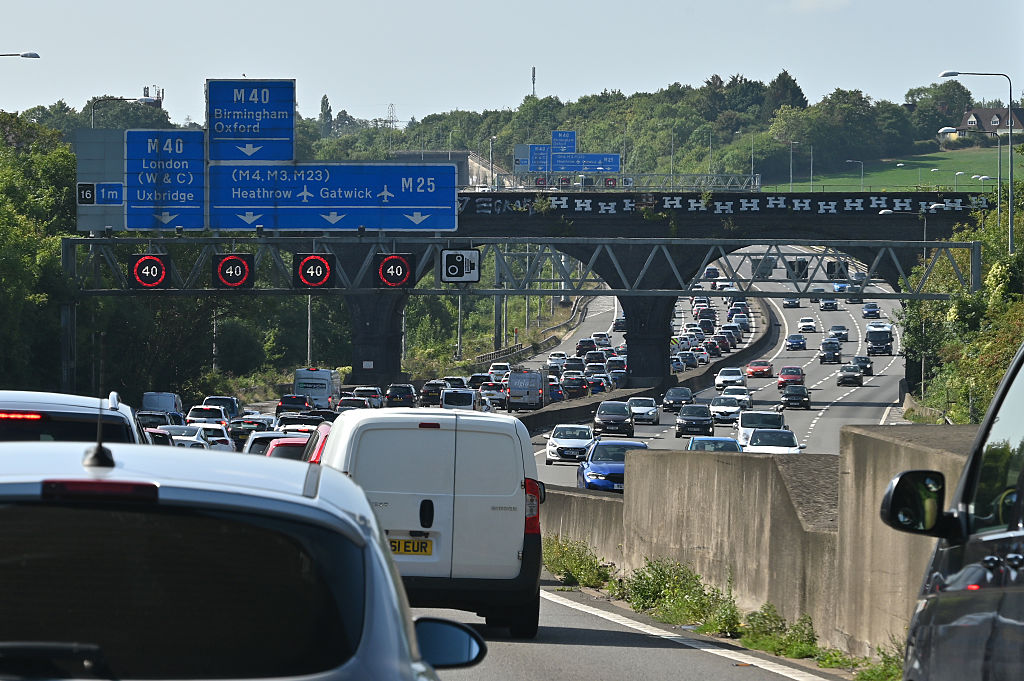Tracy Bibby had already been banned from driving in 2006 and 2016. In 2019, while her second driving ban was still in effect, she got behind the wheel of a van and began driving dangerously. While, according to the judge, ‘behaving like a Formula 1 driver’ in order to ‘show off’, Bibby crashed the van into a house, killing its occupant, a 90-year-old woman.
Bibby consistently lied to the police after the crash, telling them she had not been the driver. But CCTV evidence showed that she had in fact entered the van on the driver’s side. Found guilty of causing death by dangerous driving, Bibby was jailed for four years but banned from driving for only six. As of 2025, Bibby is legally allowed to drive again.
In late 2023, Terry Colley was driving while high and drunk when he swerved onto the other side of the road and crashed head-on into the car of a 29-year-old woman, seriously injuring her.
Colley blamed his victim, repeatedly claiming that she had been driving on the wrong side of the road, which CCTV evidence showed to be false. He was sentenced to four years’ imprisonment and a six-year-and-one-month driving ban. The presiding judge in the case described Colley as not having ‘shown a shred of remorse’, yet in 2031 he will once again be able to legally drive a car.
The law allows lifetime driving bans to be handed out to offenders convicted of the crimes that Bibby and Colley were, but the lenient driving bans they received are the rule, not the exception.
Lenient driving bans are the rule, not the exception
The think tank Onward’s report, ‘Cleared to Kill’, finds that in the year ending June 2024, only two people found guilty of causing death by dangerous driving, out of a total of 202 offenders, were given lifetime driving bans. In the same period, 351 people were found guilty of causing serious injury by dangerous driving, a crime which includes causing life-changing injuries such as paralysis. Again, only two of these offenders were given lifetime bans, with an average driving ban lasting only two or three years. Incredibly, of the six people found guilty of causing death while driving disqualified – in other words, driving during a ban – none were given a lifetime driving ban.
This leniency reflects statutory minimums and Sentencing Council guidance. The minimum driving ban for causing death by dangerous driving – the most serious motoring offence someone can commit – is five years. If an offender has ignored a driving ban and then killed, but is not deemed to have been driving dangerously, the minimum ban is a mere two years.
Between 2000 and 2021, 9 per cent of people convicted of a criminal offence accounted for more than half of all convictions. It is likely that in the case of serious motoring offences, a similarly small number of offenders represent a much larger proportion of offences. Lenient driving bans are almost certainly making the roads significantly more dangerous for everyone.
When lethal and irresponsible motorists are found guilty of dangerous driving repeatedly in a court of law, we should respond by taking away their licences for ever. If someone is found guilty of causing serious injury or death by dangerous driving more than once, they should never be allowed to drive again. If they hurt or kill someone while driving during an existing ban, again, their driving ban should be made permanent. Unlike a prison place, a permanent driving ban is a cost-free way to keep the public safer and be tougher on serious offenders.
Last week, the Government announced that it will put out a new road safety strategy. Proposed policies include reducing the drink-drive limit from 35 micrograms of alcohol per 100 millilitres of breath to 22 micrograms. Before tinkering with these rules and cracking down on law-abiding motorists, we must ask why the Government is failing to prevent repeat killer drivers from getting behind the wheel.
This can be achieved with simple changes to sentencing guidance, as already endorsed by the shadow Home Secretary Chris Philp. As a first step, the Lord Chancellor Shabana Mahmood has the power to request the Council review its guidelines formally. She should write to them immediately. Every week of delay means more of the country’s most dangerous drivers being given a free pass to return to our roads in just a few years’ time.







Comments